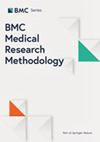An exploration of available methods and tools to improve the efficiency of systematic review production: a scoping review
IF 3.9
3区 医学
Q1 HEALTH CARE SCIENCES & SERVICES
引用次数: 0
Abstract
Systematic reviews (SRs) are time-consuming and labor-intensive to perform. With the growing number of scientific publications, the SR development process becomes even more laborious. This is problematic because timely SR evidence is essential for decision-making in evidence-based healthcare and policymaking. Numerous methods and tools that accelerate SR development have recently emerged. To date, no scoping review has been conducted to provide a comprehensive summary of methods and ready-to-use tools to improve efficiency in SR production. To present an overview of primary studies that evaluated the use of ready-to-use applications of tools or review methods to improve efficiency in the review process. We conducted a scoping review. An information specialist performed a systematic literature search in four databases, supplemented with citation-based and grey literature searching. We included studies reporting the performance of methods and ready-to-use tools for improving efficiency when producing or updating a SR in the health field. We performed dual, independent title and abstract screening, full-text selection, and data extraction. The results were analyzed descriptively and presented narratively. We included 103 studies: 51 studies reported on methods, 54 studies on tools, and 2 studies reported on both methods and tools to make SR production more efficient. A total of 72 studies evaluated the validity (n = 69) or usability (n = 3) of one method (n = 33) or tool (n = 39), and 31 studies performed comparative analyses of different methods (n = 15) or tools (n = 16). 20 studies conducted prospective evaluations in real-time workflows. Most studies evaluated methods or tools that aimed at screening titles and abstracts (n = 42) and literature searching (n = 24), while for other steps of the SR process, only a few studies were found. Regarding the outcomes included, most studies reported on validity outcomes (n = 84), while outcomes such as impact on results (n = 23), time-saving (n = 24), usability (n = 13), and cost-saving (n = 3) were less often evaluated. For title and abstract screening and literature searching, various evaluated methods and tools are available that aim at improving the efficiency of SR production. However, only few studies have addressed the influence of these methods and tools in real-world workflows. Few studies exist that evaluate methods or tools supporting the remaining tasks. Additionally, while validity outcomes are frequently reported, there is a lack of evaluation regarding other outcomes.探索提高系统综述编制效率的现有方法和工具:范围界定综述
系统综述(SR)耗时耗力。随着科学出版物数量的不断增加,系统综述的开发过程变得更加费力。这是一个问题,因为及时的系统综述证据对于循证医疗和政策制定的决策至关重要。近来出现了许多加速SR开发的方法和工具。迄今为止,还没有进行过范围综述,以全面总结提高SR生产效率的方法和即用型工具。为了概述评估使用即用型应用工具或审查方法来提高审查过程效率的主要研究。我们进行了范围界定审查。一位信息专家在四个数据库中进行了系统的文献检索,并辅以引文和灰色文献检索。我们纳入了报告卫生领域中提高编制或更新报告效率的方法和即用工具性能的研究。我们进行了双重、独立的标题和摘要筛选、全文选择和数据提取。我们对结果进行了描述性分析和叙述性陈述。我们共纳入了 103 项研究:51 项研究报告了方法,54 项研究报告了工具,2 项研究报告了方法和工具,以提高 SR 制作的效率。共有 72 项研究评估了一种方法(33 项)或工具(39 项)的有效性(69 项)或可用性(3 项),31 项研究对不同方法(15 项)或工具(16 项)进行了比较分析。20 项研究对实时工作流程进行了前瞻性评估。大多数研究对筛选标题和摘要(42 项)和文献检索(24 项)的方法或工具进行了评估,只有少数研究对 SR 流程的其他步骤进行了评估。关于纳入的结果,大多数研究报告了有效性结果(84 项),而对结果的影响(23 项)、节省时间(24 项)、可用性(13 项)和节省成本(3 项)等结果的评估较少。在标题和摘要筛选以及文献检索方面,有各种旨在提高 SR 制作效率的评估方法和工具。然而,只有少数研究探讨了这些方法和工具在实际工作流程中的影响。很少有研究对支持其余任务的方法或工具进行评估。此外,虽然经常报告有效性结果,但缺乏对其他结果的评估。
本文章由计算机程序翻译,如有差异,请以英文原文为准。
求助全文
约1分钟内获得全文
求助全文
来源期刊

BMC Medical Research Methodology
医学-卫生保健
CiteScore
6.50
自引率
2.50%
发文量
298
审稿时长
3-8 weeks
期刊介绍:
BMC Medical Research Methodology is an open access journal publishing original peer-reviewed research articles in methodological approaches to healthcare research. Articles on the methodology of epidemiological research, clinical trials and meta-analysis/systematic review are particularly encouraged, as are empirical studies of the associations between choice of methodology and study outcomes. BMC Medical Research Methodology does not aim to publish articles describing scientific methods or techniques: these should be directed to the BMC journal covering the relevant biomedical subject area.
 求助内容:
求助内容: 应助结果提醒方式:
应助结果提醒方式:


